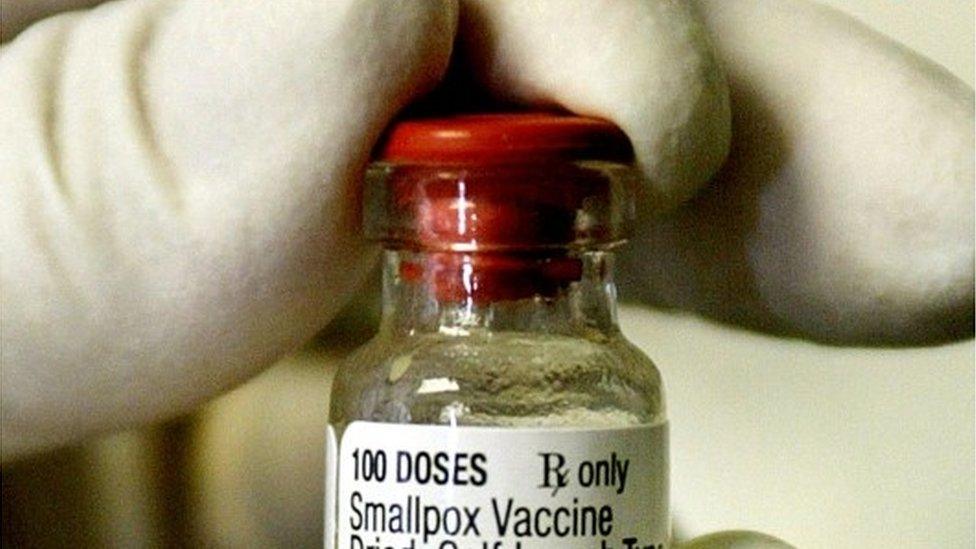Smallpox eradication 'giant' Donald Henderson dies at 87
- Published

Smallpox, an infectious disease, was once one of the world's biggest killers
US doctor and epidemiologist Donald Henderson, who led a successful campaign to wipe out smallpox worldwide, has died at the age of 87.
Hailed as a "giant" in the field of public health for his work in the 1960s and 70s, Henderson died of complications after breaking a hip.
One of the world's deadliest diseases, smallpox killed hundreds of millions of people in the last century alone.
Apart from causing great pain, it often caused lesions on the face and body.
And it killed about one in three of those infected.
It was officially declared to have been eradicated in 1980 - the first infectious disease to have been fought on a global scale.
'Changed the world for the better'
The World Health Organization appointed Henderson, known as D.A, to lead its drive to stamp out the disease in 1966, external. At the time it was still endemic in Africa and Asia.
Few gave him much chance of success. But Henderson focussed on isolating outbreaks of the disease and systematically vaccinating people, rather than a mass vaccination programme.
After his work for the WHO, Henderson went on to serve as science and bioterrorism adviser to three US presidents as well holding other academic and medical posts.

WHO global drive against smallpox 1966-1980
Total cost of eradication was $300m
More than 200,000 staff in over 70 countries carried out the work
Involved 2,400 million doses of vaccine
Source: World Health Organization

Henderson "truly changed the world for the better,, external" a tribute from Tom Inglesby, Director of the University of Pittsburgh Medical Center for Health Security said.
"He led the effort to rid the world of smallpox. He advised presidents. He was honoured by countries around the planet. He changed the way schools of public health teach the next generation.
"With all of that, he still took the time to be a mentor to countless young people, and was a great friend. He is truly irreplaceable, and I will miss him."